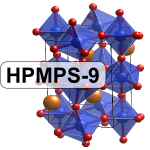The inner dynamics of the Earth is intimately linked to the energy budget of the planet. Several sources contribute to the heat budget such as the primordial heat or the latent heat linked to the crystallization of the inner core. Another substantial source is the radioactive decay of long lived radionuclides (K, U and Th). To accurately describe the heat engine that is the planet, one has to infer the composition of the core in terms of these radioactive elements.
Presence of potassium in the core has been suggested in the early 70's, and has been the subject of numerous metal-silicate partitioning studies at various conditions of pressure and temperature using large volume presses. In another hand, uranium solubility in liquid iron has been shown to increase with high temperature and sulfur content of the metal.
Here, we conducted metal-silicate partitioning study of potassium and uranium using the laser-heated diamond anvil cell technique to investigate P-T conditions directly relevant to core-mantle equilibration at the base of a deep magma ocean. We have tested the effects of pressure, temperature, but also silicate and metal composition with starting material that were either basaltic or pyrolitic and with or without sulfur. We show that high pressures enhance potassium solubility in the metal, whereas uranium is more sensitive to the presence of oxygen in the core and to high temperatures. Sulfur has no effect on potassium and uranium metal silicate partitioning at the condition of our experiments.
Our results have ultimately been incorporated in continuous core formation models to calculate the amount of potassium and uranium that can be expected in the Earth's core and thus, estimate the Bulk Earth composition of these radionuclides.

 PDF version
PDF version
